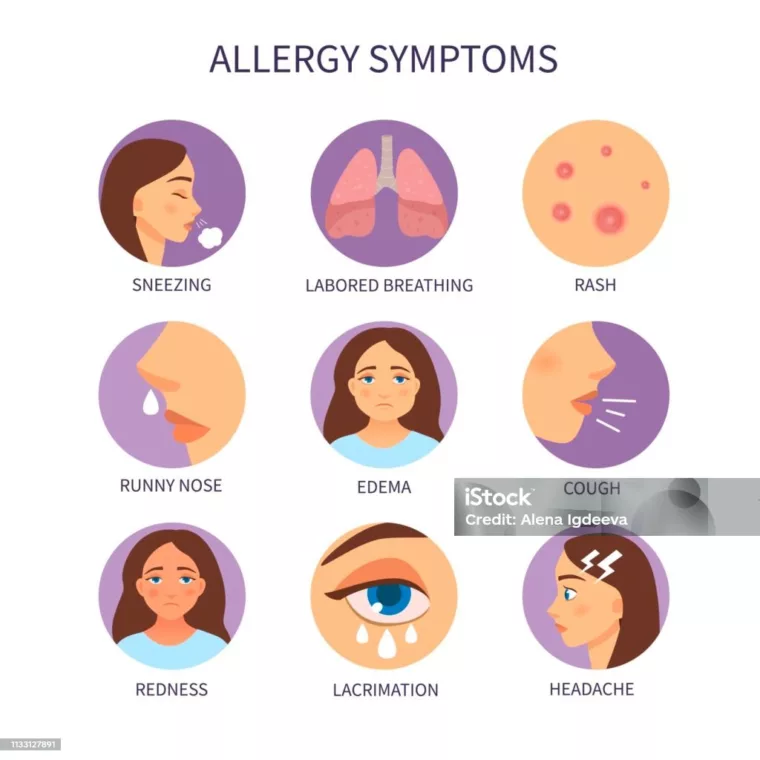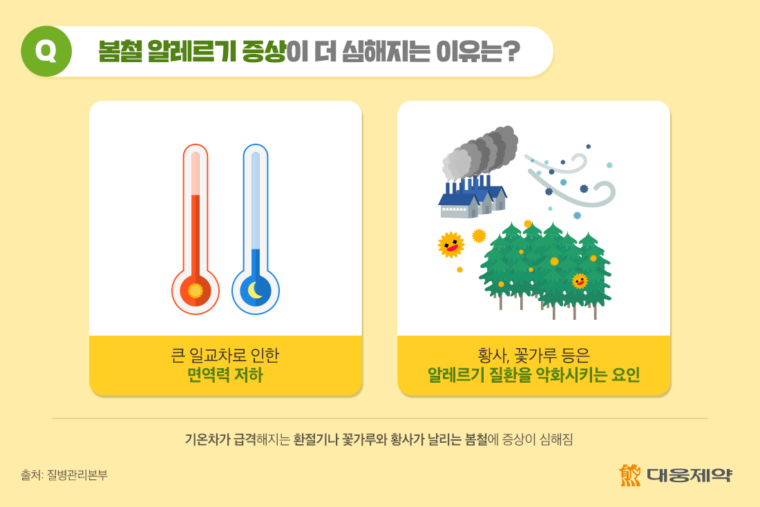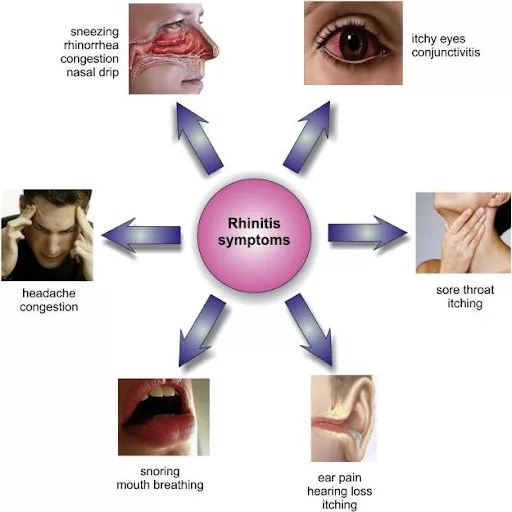Allergies and Seasonal Changes

As we navigate through seasonal changes, it seems many of us suffer from allergy symptoms. I, too, experience the discomfort of allergy symptoms that inevitably come with the change of seasons. Today, let’s delve into the relationship between allergies and seasonal changes, including symptoms, causes, and how to manage them.

- Understanding the Connection Between Allergies and Seasonal Changes
Seasonal changes signify climate shifts caused by the transition of seasons. Spring and autumn, in particular, exhibit strong seasonal change phenomena, characterized by significant temperature fluctuations between day and night, and an increase in airborne pollutants like fine dust and yellow dust. These environmental changes are closely related to allergies.
- Identifying Major Symptoms of Seasonal Allergies
Seasonal allergies present a variety of symptoms, primarily including nasal congestion, sneezing, swelling of the nasal passages, and a runny nose. Additionally, systemic symptoms such as headaches, fatigue, and skin itching may accompany these.

- Causes: Why Do Allergies Worsen During Seasonal Changes?
Several factors contribute to the exacerbation of allergies during seasonal changes.
Firstly, the increase in air pollution, including fine dust and yellow dust, during these times leads to a higher incidence of respiratory diseases and allergic reactions. Secondly, the proliferation of pollen and foreign substances, typical of seasonal changes, increases the presence of allergens.
- Introducing Common Types of Seasonal Allergies
The most common type of seasonal allergy is seasonal rhinitis, characterized by inflammation of the nose and sinuses, accompanied by symptoms such as nasal congestion, sneezing, and swelling of the nasal passages. Other types of allergies, including eczema, asthma, and conjunctivitis, can also worsen during seasonal changes.

- Diagnosing Seasonal Allergies: Consultation and Testing
Diagnosing seasonal allergies requires consultation with a specialist and testing. An allergist can evaluate symptoms related to seasonal allergies and conduct necessary blood tests or skin allergy reaction tests for an accurate diagnosis.
- Practical Prevention Methods
To prevent seasonal allergies, several practical measures can be taken.
Firstly, wearing masks outdoors to block fine dust and yellow dust is crucial. Secondly, maintaining a clean indoor environment and using air purifiers to remove fine dust can also be beneficial.

- Medication Treatment: Available Medications and Precautions
Medication may be necessary to alleviate the symptoms of seasonal allergies. Antihistamines and nasal sprays can help manage symptoms, but caution is advised. It’s important to adhere to the correct dosage and application method and be aware of potential side effects.
- Non-Medication Treatments: Natural Healing Methods and Alternatives
Beyond medication, non-medication treatments can help manage seasonal allergies. For instance, dietary adjustments to boost immunity or drinking herbal teas can be beneficial. Natural remedies and physical therapy are also worth considering.
- Managing Seasonal Allergies Through Indoor Environmental Control
To manage seasonal allergies, it’s crucial to maintain an appropriate indoor environment. Regular cleaning to prevent the accumulation of pollen or fine dust is necessary. Additionally, using air purifiers and dehumidifiers can improve indoor air quality.
- Long-Term Management and Establishing Healthy Lifestyle Habits
For long-term management of seasonal allergies, establishing healthy lifestyle habits is essential. Maintaining adequate sleep, regular exercise, and a nutritious diet can strengthen the immune system and mitigate allergic reactions.

We’ve explored seasonal changes and allergies together. Remember, through prevention and management, the symptoms of seasonal allergies can be alleviated. I hope you find the right coping strategies and enjoy a healthy transition through the seasons! 🌸
I’ll introduce some foods that can help alleviate allergy symptoms during seasonal changes. These foods can strengthen the immune system, reduce inflammation, and ease allergic reactions. However, it’s important to consult with a professional if you have any health conditions or allergies to specific foods.

Foods rich in omega-3 fatty acids:
Fish such as salmon, mackerel, and herring are rich in omega-3 fatty acids. Omega-3 can help reduce inflammation and strengthen the immune system.
Fruits and vegetables rich in vitamin C: Foods like oranges, kiwis, strawberries, broccoli, and bell peppers are rich in vitamin C, which can help alleviate allergy symptoms. Vitamin C acts as a natural antihistamine, reducing allergic reactions.
Fermented foods containing probiotics:
Fermented foods like yogurt, kimchi, and kefir contain probiotics that support a healthy gut microbiome. A healthy gut environment helps maintain the balance of the immune system, which can alleviate allergy symptoms.
Foods rich in quercetin:
Apples, berries, onions, and tea (especially green tea) contain an antioxidant called quercetin. Quercetin has a natural antihistamine effect that can help alleviate allergy symptoms.
Ginger:
Ginger has strong anti-inflammatory effects that can help reduce inflammation associated with allergy symptoms.
While these foods can help alleviate seasonal allergy symptoms, they may not have the same effect on everyone. Finding what works for you may require various attempts and advice from professionals.





